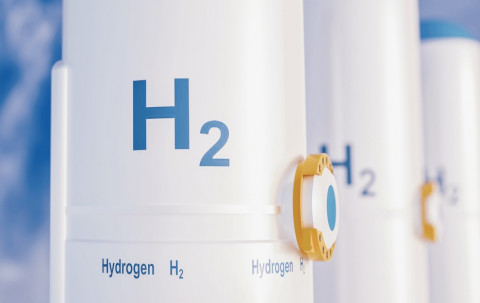H2-Industries to develop waste-to-hydrogen plant worth $1.4 billion in Oman
H2-Industries and Public Establishment for Industrial Estates – Madayan have announced that they have signed a memorandum of understanding (MOU) to develop a waste-to-hydrogen plant in conjunction with PV solar power plants with base-load capacity in the Sultanate of Oman.
The proposed $1.4 billion facilities will be built on a 200,000m2 coastal site.
The facility will initially convert up to one million tons of municipal solid waste each year sourced from waste management operators and mined from existing landfills but can expand to manage up to four million tons of waste. The project also includes the construction of a 300 MW base-load capable PV solar installation that will include 70 MW of electrical storage.
The annual production of hydrogen and CO₂ generated from the waste has an export value of over $268 million, comprising 67,000 tons of green hydrogen and one million tons of CO₂. Although the primary function of the plant is to produce green energy without environmentally harmful emissions, it also offers additional benefits to the region. The project will allow Oman to develop an effective waste management system, creating employment and delivering other socio-economic benefits.
Tackling waste management challenges
Municipal solid waste management is a challenging issue for the Sultanate of Oman. With a population of almost three million inhabitants, the country produces about 1.9 million tons of solid waste each year. The per capita waste generation in Oman is more than 1.5 kg per day, among the highest worldwide.
H2-Industries' proprietary technology transforms organic waste including plastic, sewage sludge, and existing landfill waste in a thermos-chemical process into green hydrogen and pure CO₂. This is achieved without the use of external electricity or burning waste, making the entire process emission-free. The green hydrogen produced from that process can be transported and stored, using H2-Industries' Liquid Organic Hydrogen Carrier (LOHC) technologies, and released on demand for use in industrial applications. Once the pre-development and permitting phase is completed, the facility will start producing hydrogen in approximately 30 months.
Oman's first waste-to-hydrogen facility
"This is an exciting opportunity and one that will take the tons of waste that collects in Oman and turn it into green hydrogen," Executive Chairman of H2-Industries, Michael Stusch said.
"The $1.4 billion investment into Oman will make a substantial contribution to the country's waste management strategy and demonstrates how fighting climate change and enhancing environmental protection can go hand in hand and benefit all stakeholders."
A growing market for green hydrogen
The green hydrogen produced at the facility can be sold and transported for international use or H2-Industries can create low-cost synthetic diesel (eDiesel) or sustainable aviation fuel (SAF), with the captured CO₂, which is the only emission in this process, depending on international market demand.





















